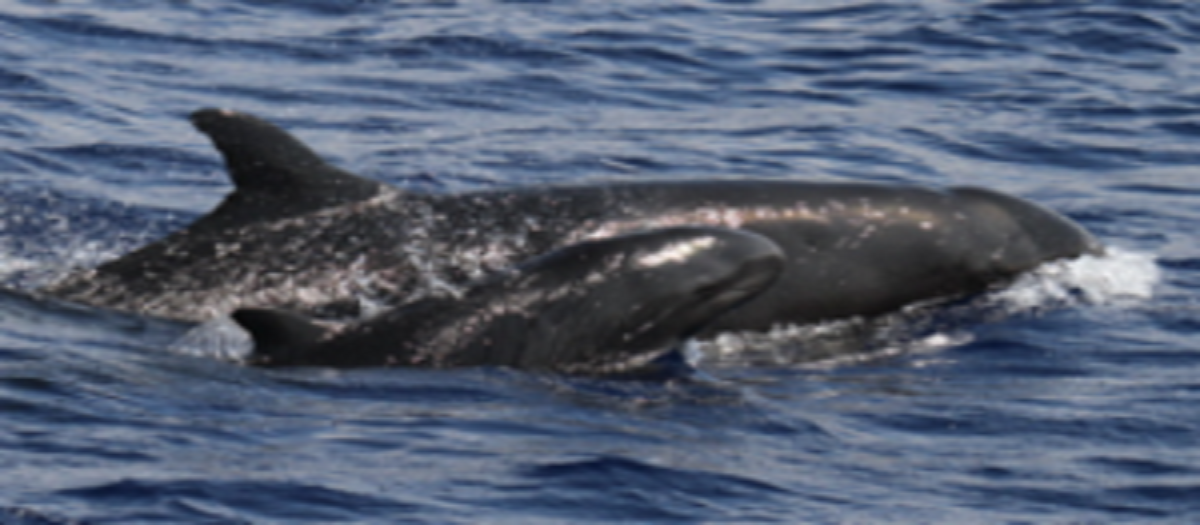Under Court Order – National Marine Fisheries Service Finalizes Plan to Protect Endangered Marine Species
Honolulu, Hawai‘i – After three rounds of litigation stretching over nearly a decade, the federal agency charged with protecting marine mammals finally issued a plan to protect false killer whales from unsustainable levels of death and serious injury in the Hawai‘i-based longline fisheries.
The National Marine Fisheries Service announced today that, pursuant to a court-ordered settlement with the Center for Biological Diversity and Turtle Island Restoration Network, represented by Earthjustice, the agency has finalized a take reduction plan for Hawai‘i’s false killer whales (Pseudorca crassidens, which are actually large dolphins). The plan, which is required under the federal Marine Mammal Protection Act, will take effect 30 days after it is published in the Federal Register, with publication expected on November 27, 2012.
The Service’s own data have shown for over a decade that Hawai‘i-based longline fishing kills false killer whales in Hawaiian waters at unsustainable rates, with animals entangled and drowned in the fishery’s miles of hooked lines. The latest data, which the agency released in August 2012, reveal that, each year, longline fishing kills an average of more than 13 false killer whales from the “Hawai‘i Pelagic Stock” (animals found more than 22 nautical miles from the main Hawaiian Islands), nearly 50 percent more than what the agency has said that population can sustain.
False killer whales in the “Hawai‘i Insular Stock” (animals found within approximately 75 nautical miles of the main Hawaiian Islands) are being killed in Hawai‘i-based longlines at nearly twice the sustainable rate, contributing to a 9 percent decline in the population each year since 1989. Only about 150 of these animals remain, and, today, the Fisheries Service also finalized a rule to list this population as “endangered” under the Endangered Species Act.
View photos of the devastating toll that Hawai‘i-based longline fishing inflicts on Hawai‘i’s false killer whales here: http://earthjustice.org/fkw
In January 2010, under pressure from the conservation groups’ lawsuits, the Fisheries Service established a take reduction team for Hawai‘i’s false killer whales, which included scientists, conservationists, state and federal agencies and fishing industry representatives. Within six months, the team achieved consensus on a draft take reduction plan.
A key element of the consensus plan was to require longliners to use circle hooks that are strong enough to hold the fishery’s target – bigeye tuna – and weak enough to bend and straighten under the greater pull strain of a false killer whale, allowing the animal to free itself and avoid death. In the final plan, the Fisheries Service allowed the use of stronger hooks than the take reduction team – which included longline fishers – had proposed, increasing the permitted thickness from 4.0mm to 4.5mm. The change means that it will be more difficult for false killer whales to free themselves from longline gear, increasing the risk of death.
“The Marine Mammal Protection Act is one of our best and most effective wildlife protection statutes, but the take reduction process can work only if the Fisheries Service faithfully implements it. Unfortunately, here, the agency substantially weakened the plan to the detriment of both the false killer whales and the integrity of the take reduction planning process,” said Brendan Cummings of the Center for Biological Diversity, a member of the take reduction team.
In addition to requiring the use of circle hooks, key elements of the take reduction plan include an expansion of the area around the main Hawaiian Islands where longline fishing is prohibited, which will particularly benefit false killer whales in the endangered Insular Stock, and provisions for closure of an additional area to the south of the main Hawaiian Islands in years of excessive false killer whale by-catch.
“While these new measures will hopefully help reduce the severe impact the Hawai‘i longline fishery has been having on these magnificent dolphins, we are disappointed that some of the recommended measures have been weakened. We will be monitoring the fishery closely for effectiveness and compliance and won’t hesitate to take additional actions if problems persist,” said Todd Steiner, biologist and executive director of the Turtle Island Restoration Network.
“The law requires the take reduction plan to reduce false killer whale deaths in the longline fishery to sustainable levels within six months and to further reduce harm from the fishery to one-tenth that level within five years,” explained Earthjustice attorney David Henkin. “We will be keeping watch on the situation to make sure Hawai‘i’s false killer whales receive the protection to which they are legally entitled and that they desperately need. If the agency shirks its duty, we will take prompt action to uphold the law, as we have in the past.”
– 30 –
Turtle Island Restoration Network is a non-profit environmental organization committed to the study, protection, enhancement, conservation, and preservation of the marine environment and the wildlife that lives within it. TIRN has approximately 60,000 members and supporters, many of whom reside in the state of Hawai‘i, and has offices in the United State and Costa Rica. For more information, visit www.SeaTurtles.org.
Earthjustice is a non-profit, public-interest, environmental law firm. The Mid-Pacific office opened in Honolulu in 1988 as the Sierra Club Legal Defense Fund, and has represented dozens of environmental, native Hawaiian, and community organizations. Earthjustice is the only non-profit environmental law firm in Hawai‘i and the Mid-Pacific, and does not charge clients for its services. For more information, visit www.earthjustice.org.
The Center for Biological Diversity is a national, nonprofit conservation organization with more than 350,000 members and online activists dedicated to the protection of endangered species and wild places. For more information, visit www.biologicaldiversity.org




